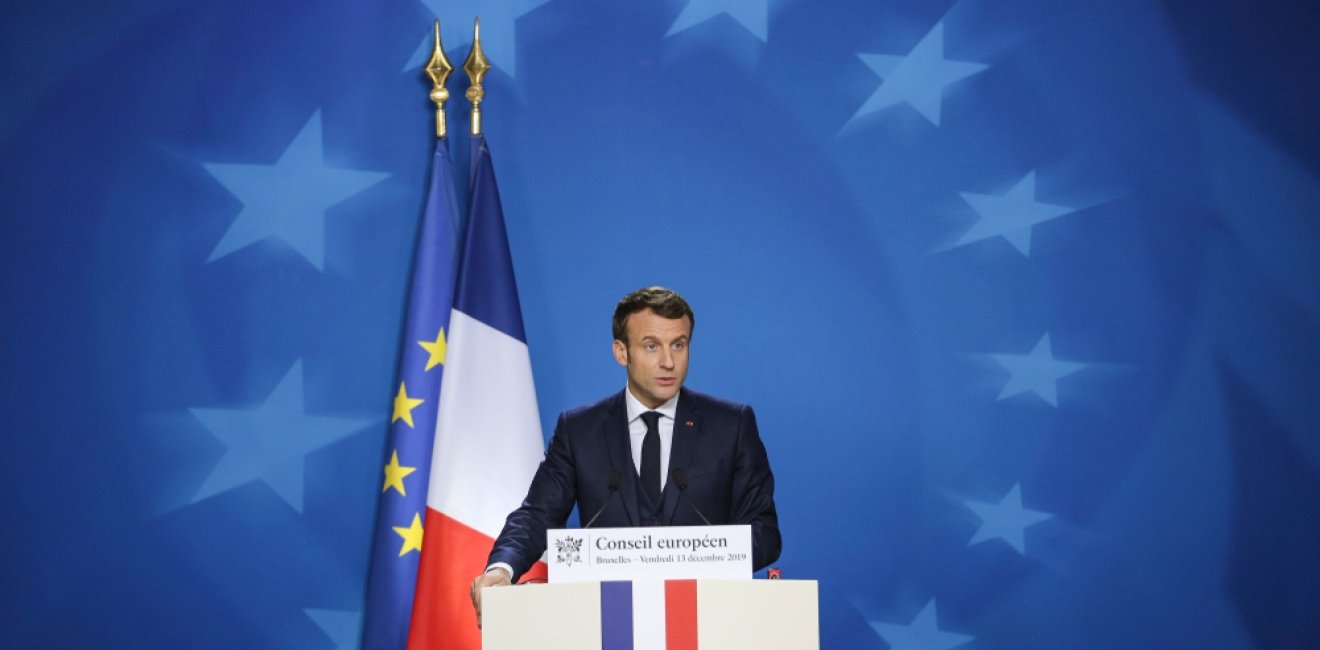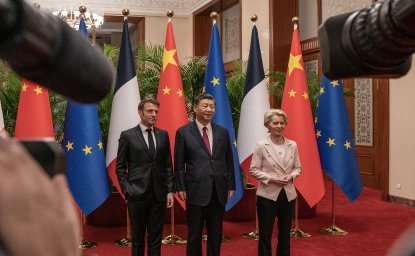President Macron has spent the last several weeks trying to clarify his controversial remarks on how Europe views China, following his trip to Beijing to meet Chinese President Xi in April. In a press conference with Dutch Prime Minister Mark Rutte, he doubled down on his remarks, stating, “being allies doesn’t mean being vassals.” The role of European countries in Great Power Competition is actively being defined before our eyes, as the situation between China and the United States grows tenser. This reiteration of the importance of European strategic autonomy (ESA) came despite mixed reactions from other European partners such as Polish Prime Minister Mateusz Morawiecki, who, on a trip to DC to demonstrate Poland still sees the value of U.S. presence in Europe, declared, "European autonomy sounds fancy, doesn't it? But it means shifting the center of European gravity towards China and severing the ties with the US.”
The differing reactions to President Macron's statements on European Strategic Autonomy challenge the Elysée's emphasis that European strategic autonomy is “not just a concept, it is becoming a reality” and leads some observers to question: is the push for European strategic autonomy European or French?
The French government dates the first official use of the term ‘strategic autonomy’ back to 1994; when it appeared in the French White Paper on Defense. Strategic autonomy, at the time, highlighted France's need not to rely solely on the Atlantic Alliance for its security and nuclear deterrence, as France then was not fully part of the NATO command structure. In this original context, strategic autonomy was exclusively national and had a strict defense and security dimension. Only in 2013, on the occasion of the European Council's first thematic debate on defense since the Lisbon Treaty entered into force in 2009, was the concept of strategic autonomy pushed from the national level to the European level. This time, strategic autonomy wasn't asserted in the context of national defense nor nuclear deterrence but instead to strengthen Europe's defense industry and the EU's Defence Technological and Industrial Base (EDTIB).
Macron's more recent comments are part of a wider debate on European strategic autonomy that goes back to the series of crises the EU underwent in 2016 following Brexit and uncertainty surrounding the future of the U.S. commitment to European defense. As the United States, the supposed guarantor for European security, focused elsewhere, mainly the Indo-Pacific to counter the rise of China, the popularity of the concept of European strategic autonomy became part of the vernacular of European leaders seeking to demonstrate their nation’s capability, President Macron's emphasis on European sovereignty in his speech at the Sorbonne in 2017 most clearly defined and demonstrated the resurgence of European strategic autonomy. According to the French President in his speech, the first key to European sovereignty is "ensuring Europe's autonomous operating capabilities."
Following President Macron’s recent remarks on China and European strategic autonomy, some key political players in the United States have criticized European strategic autonomy -- describing Macron’s remarks as a sign of ingratitude following landmark U.S. support for Ukraine and efforts to bolster European security across the board. Despite this criticism, and even though President Macron mentions the "gradual and inevitable disengagement by the United States," he also emphasizes that European strategic autonomy must be developed "in complement to NATO." NATO remains the essential vehicle for European defense cooperation and calls for strategic autonomy are careful to not undermine the Alliance’s role. As the European Commission's Vice President Josep Borell wrote, "Transatlantic solidarity will be stronger if solidarity among Europeans is strengthened, including in the area of security and defense.”
Support for European strategic autonomy also increased in 2020 as the COVID-19 pandemic emphasized the dangers of over-reliance and import dependencies. EU member states’ governments came under fire for their inability to supply critical protective equipment to doctors and nurses during the first stages of the pandemic. Many drug ingredients were also imported from China, affecting supplies at home due to disrupted production and delayed shipments. Thus, European strategic autonomy became "Open Strategic Autonomy" that not only focused on defense and security but also sought to “mitigate economic dependence on foreign supply chains.”
If the start of the pandemic was a tumultuous time for the EU and the world, then 2022, with Russia's full-scale invasion of Ukraine, was a watershed moment for European security. Its effects on European strategic autonomy are two-fold. On the one hand, there was an increased focus on security and defense across the European continent, as demonstrated by the Versailles Declaration and the EU Council’s swift and unanimous approval of its Strategic Compass. On the other hand, some experts have said that the war in Ukraine has “reinforced the centrality of U.S. political leadership” and the importance of NATO as a security guarantor. Though supporters of ESA have long demonstrated that strategic autonomy and a strong transatlantic partnership aren’t oxymorons, the renewed prominence of NATO’s role and the United States’ engagement in Europe seems to have made European strategic autonomy more controversial. In the vacuum of conflict, ESA was easy to agree to, but now with war on Europe’s eastern flank, it has shown the sharp divisions in European leaders’ support for ESA.
While President Macron’s statement provoked a diplomatic whirlwind on both sides of the Atlantic, it had the merit of rekindling the debate on European strategic autonomy and pushing various leaders and experts to weigh in on the matter in a way that will hopefully allow the EU and its member states to further develop its strategic position.
Author


Global Europe Program
The Global Europe Program is focused on Europe’s capabilities, and how it engages on critical global issues. We investigate European approaches to critical global issues. We examine Europe’s relations with Russia and Eurasia, China and the Indo-Pacific, the Middle East and Africa. Our initiatives include “Ukraine in Europe”—an examination of what it will take to make Ukraine’s European future a reality. But we also examine the role of NATO, the European Union and the OSCE, Europe’s energy security, transatlantic trade disputes, and challenges to democracy. The Global Europe Program’s staff, scholars-in-residence, and Global Fellows participate in seminars, policy study groups, and international conferences to provide analytical recommendations to policy makers and the media. Read more





